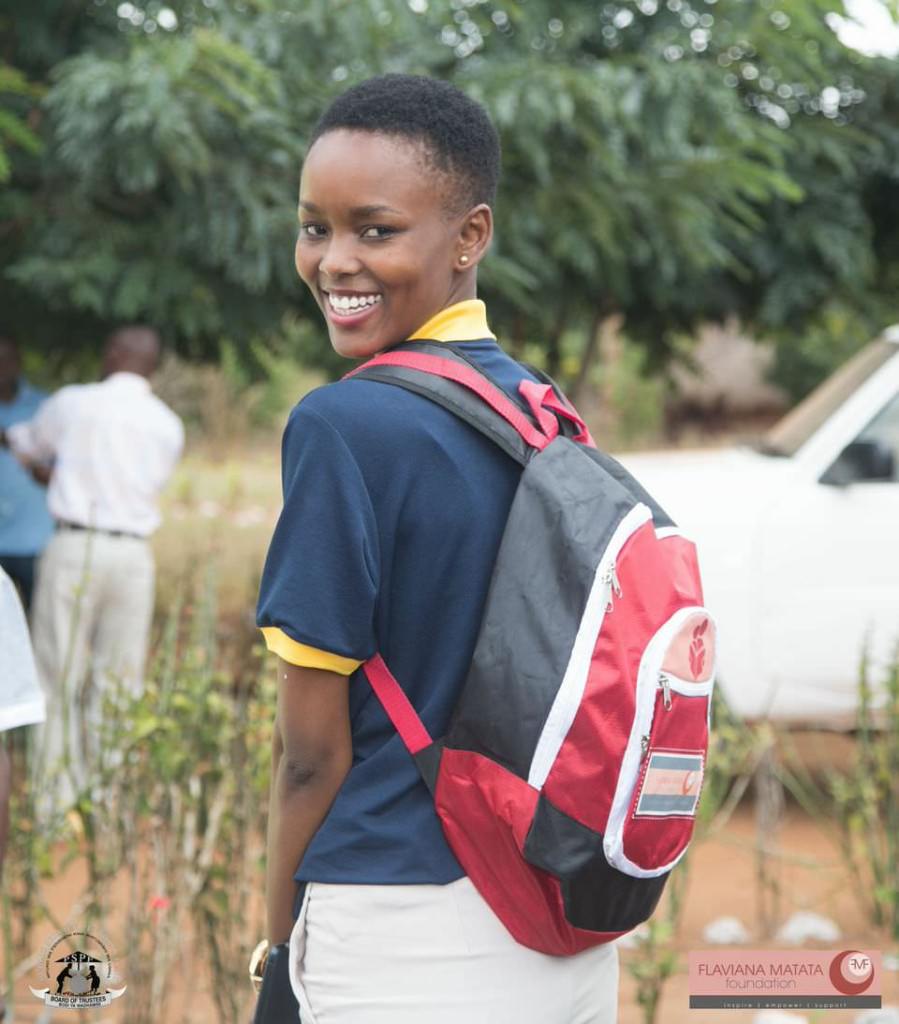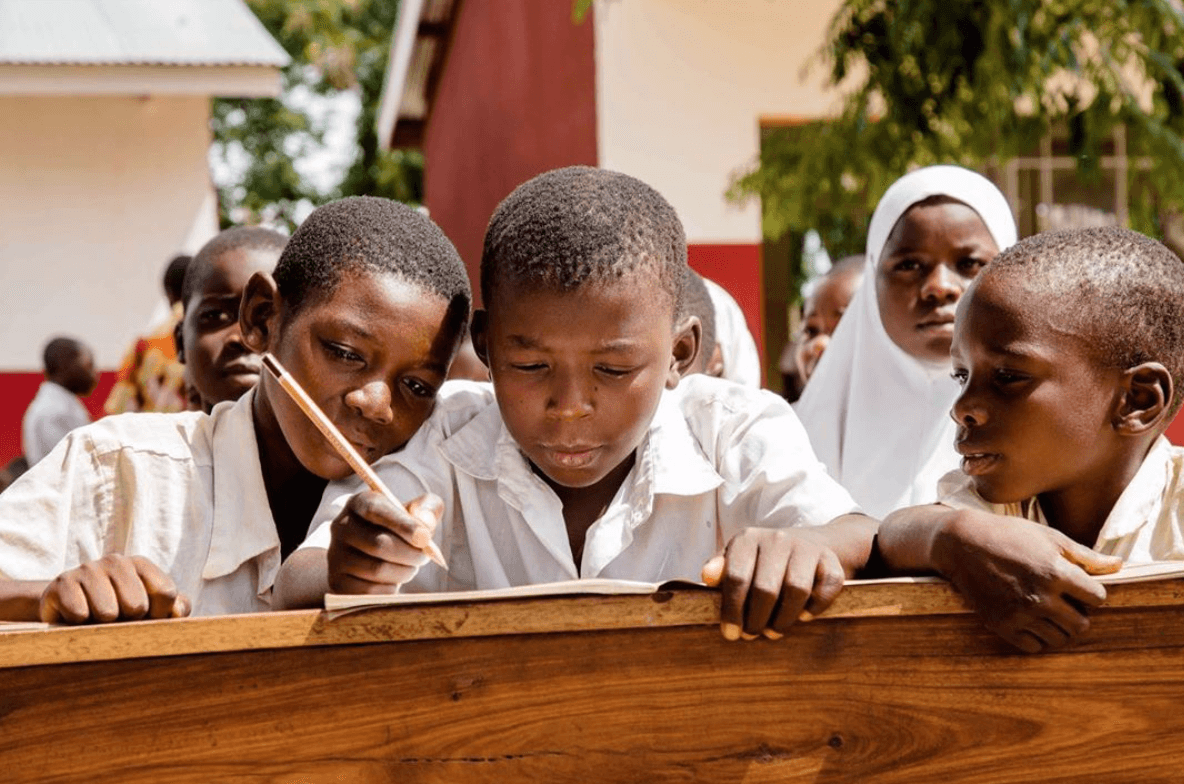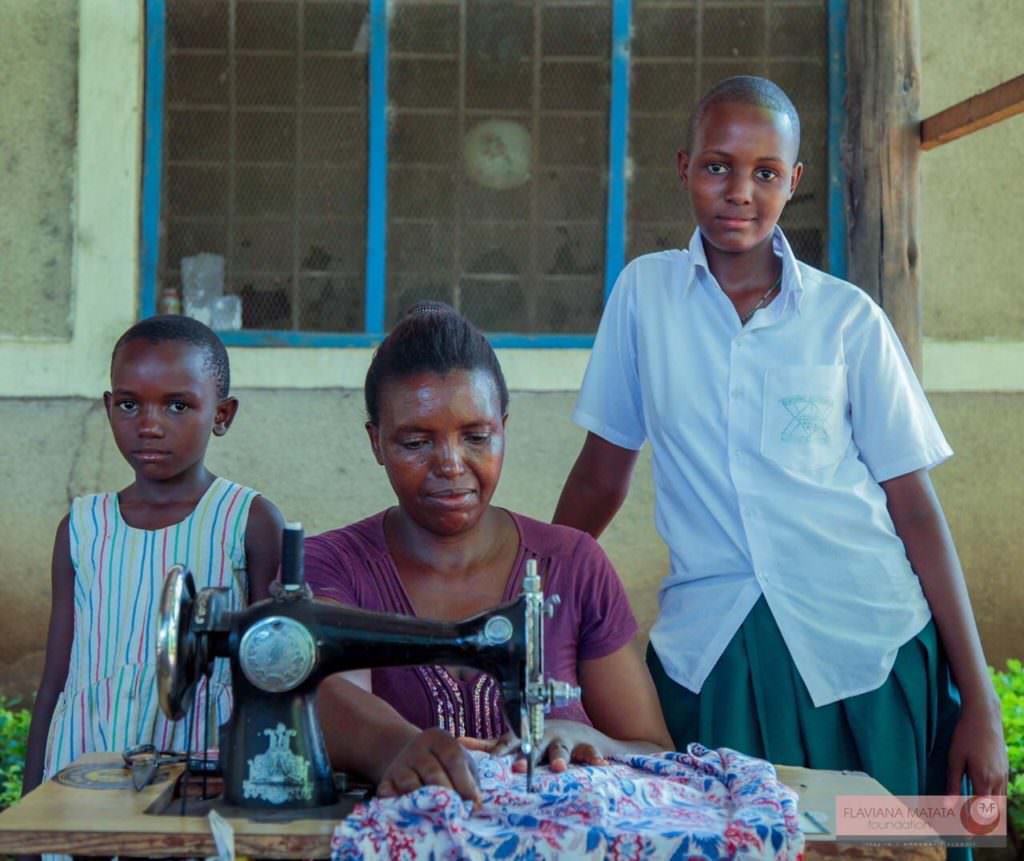For model Flaviana Matata, being crowned Miss Universe Tanzania and enjoying a successful international career just wasn’t enough.
Going back to her roots, Matata founded the Flaviana Matata Foundation (FMF) in 2011, a grassroots non-governmental organization (NGO) that provides financial and material support to underprivileged girls in Tanzania. Her team also provides school supplies to over 3,000 students and renovates school buildings, many of which lack basic facilities.
She studied electrical engineering in college, preparing herself for a successful career. However, her life’s course quickly changed in 2007 when she entered and won the first Miss Universe Tanzania competition. She went on to compete in the Miss Universe pageant and soon embarked on a successful international modeling career, appearing in ads by designers such as Vivienne Westwood and Tori Burch.
Fighting Poverty and Education Inequality in Tanzania
Yet, despite the success, Matata felt compelled to travel back to her roots and support young women far less fortunate than herself. Her charitable work was inspired by her father, a single parent who bent over backward to support those around him and ensure that his extended family went to school. In a region like sub-Saharan Africa where only 17% of girls are enrolled in secondary school, this made a lasting impression on Matata.

In 2019, Diamonds Do Good and the Flaviana Matata Foundation provided scholarships to 15 female students who will be supported from the time they start secondary school until they finish university. This assistance from Diamonds Do Good represents the diamond industry and its commitment to strengthening local communities in diamond producing countries like Tanzania.
The foundation’s small team and minimal operational costs allows money to flow directly to the kids, says Matata.
“We are on the ground and know the girls’ challenges better than anybody.”
The FMF covers school fees, school supplies, and in Matata’s own words, “anything that allows the girls to stay in school.”
Empowering Girls Through Education
Family financial circumstances often prevent poorer Tanzanian children from finishing school, thus allowing the cycle of poverty to continue.
“A lot of kids do very well in school but have to quit or stop because they can’t afford school fees, uniforms or even books—the little things we take for granted,” says Matata.
She shares the story of a star student who would not have been able to continue her education without the FMF’s assistance. The young woman, an orphan, had limited funding to pay school fees. The slightest extra cost, be it a book or a uniform, would prohibit her from attending—and finishing classes.
“She had repeated classes more than six times,” says Matata, adding that the student will now be the first child in her family to finish high school. “It’s really a big opportunity.”
The FMF focuses on supporting young women who are most likely to be left behind when it comes to education.
“In most poor families, when the parents have a chance to take one kid to school they will choose a boy and not a girl,” she said.
The traditional notion that girls should marry and have babies at a young age prevails in the country—women can marry as young as age 13.
“We are trying to educate the community that the girl is supposed to go to school so they can have a better life because we believe that there should be equal opportunities,” Flaviana added.
When delivering school supplies to one school, Matata and her team learned that facilities were severely lacking. Proper toilets and classrooms were lacking, and students were learning “under the trees” as Matata describes it.

Diamond Industry Empowers Diamond Communities
In diamond producing countries like Tanzania, the support of the industry sponsors like Diamonds Do Good, which sponsors the Flaviana Matata Foundation, is crucial, says Matata.
“At the end of the day, if it wasn’t for these diamond communities, there wouldn’t be a diamond industry,” says Matata, “so it’s very important to empower the people living there.”



